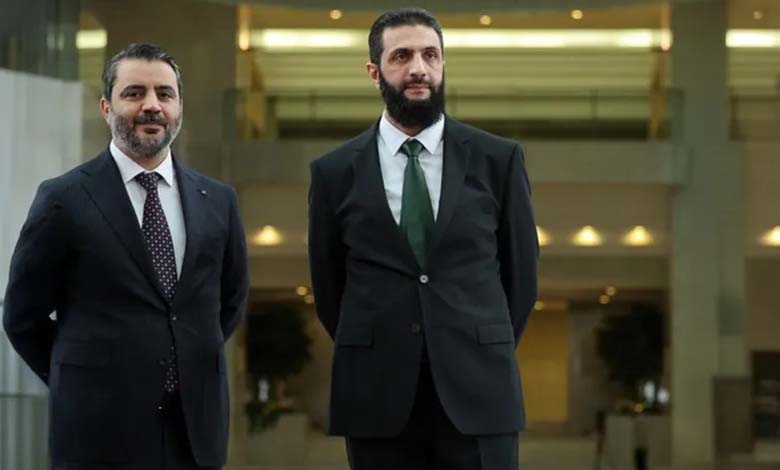The U.S. Administration and Syria: Caution and Skepticism Towards the New Regime Led by Ahmad Al-Sharaa

The U.S. administration has taken a cautious and skeptical stance toward the new ruling authority in Syria. Daily developments suggest an increasingly negative approach toward Ahmad Al-Sharaa’s administration.
This skepticism became evident after U.S. Secretary of State Marco Rubio’s recent visit to Israel. During the visit, he commented on Syria’s new government, stating: “The fall of Assad is a promising and significant development, but Syria replacing one destabilizing force with another similar one is not a positive outcome.”
-
Al-Sharaa Pledges to Form an Inclusive Government in His First Speech to Syrians
-
Will al-Assad’s Regime Collapse Help ISIS Expand in Africa?
During the Paris conference on Syria, the U.S. representative—head of the Middle East office at the State Department—refused to sign the declaration endorsed by all other participants. According to the conference organizers, Washington’s reluctance stems from its reservations about Hay’at Tahrir al-Sham, which currently governs Syria under Ahmad Al-Sharaa and the institutions established since the fall of Bashar Al-Assad’s regime on December 8.
Several American officials have stated that the Biden administration is still reviewing its policy toward the new Syrian regime and that this process is ongoing. As a result, Washington prefers to wait before making any formal commitments at the national level.
-
Kurdish Initiative to Secure Northern Syria’s Borders with U.S. and French Forces
-
Syria Monitor: 101 dead in clashes between pro-Turkish, Kurdish forces
In this context, Syrian writer and political analyst Mazen Bilal said that the U.S. refusal to sign the Paris declaration on Syria was expected. According to him, this decision reflects the low level of political representation of the U.S. administration at the conference, demonstrating limited interest in Syria’s situation. France, on the other hand, justified its refusal to sign by citing U.S. policy, which remains in an observation phase regarding the new governance in Damascus.
-
Washington Follows the Events in Syria… What about “Hayat Tahrir al-Sham”?
-
The Pentagon is “powerless” against mysterious drones… Unchecked intrusions over a U.S. base
Bilal also noted that President Donald Trump is currently taking a similar approach to his first term. At that time, he made unilateral decisions without coordinating with Europe, such as the bombing of Al-Shayrat Airbase or the signing of an agreement with Vladimir Putin regarding southwestern Syria, which ended the fighting in the Golan and Hauran. Today, Trump is acting in a similar fashion, believing that his administration’s priorities should be pursued independently of European intervention—just as he has done with the war in Ukraine.
-
“Coordination and Intelligence”… This is how America cooperated with Israel in Lebanon’s strike
-
Betting on a “Breath of Life”… U.S. Officials Warn of ISIS’s Return in Syria
According to the Syrian analyst, predicting the future U.S. policy toward Syria is difficult without first observing how the administration resolves its positions on Gaza and Lebanon. In both cases, Washington has taken a firm stance, testing the resilience of regional policies against Trump’s plans, which have already sealed the fate of Hamas and Hezbollah. The U.S. strategy involves deporting Gaza’s population to eliminate any military presence in the Strip, while in Lebanon, it seeks to assign the army to a dangerous confrontation with Hezbollah to dismantle its military and political influence.












